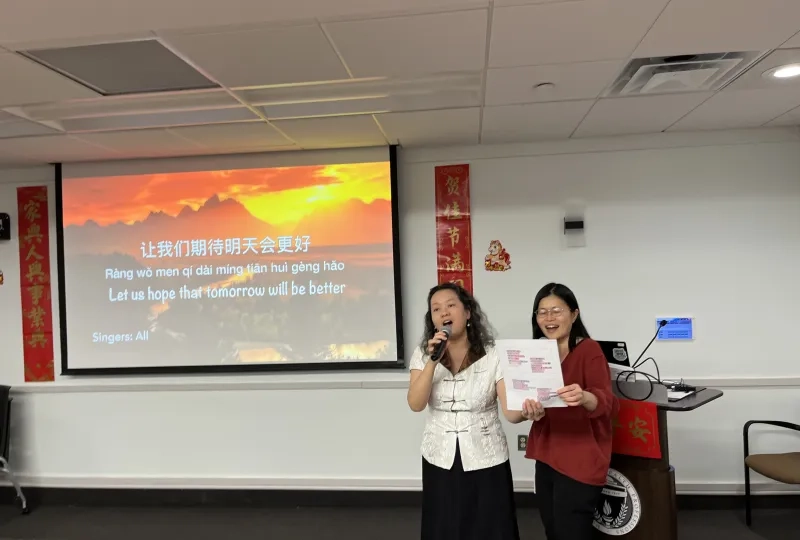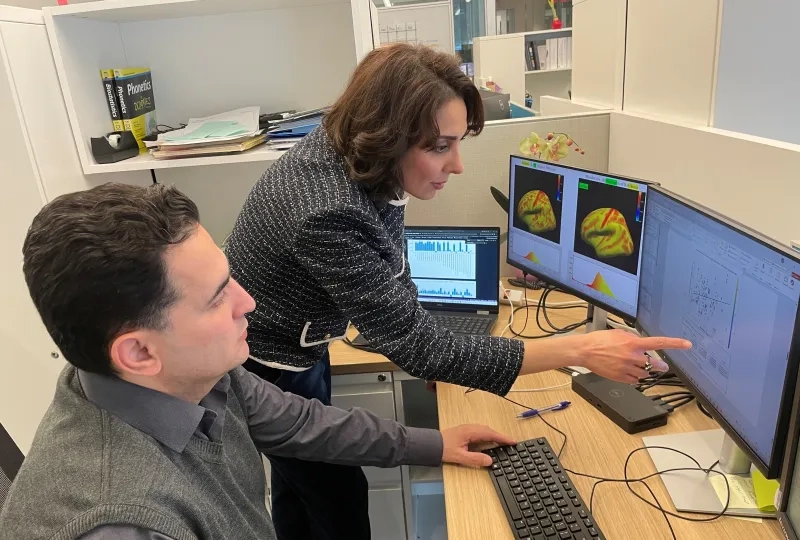
In the realm of communication, speech and language disorders introduce unique challenges affecting individuals across various age groups. The MGH Institute of Health Professions, the graduate school affiliate of Mass General Brigham, is a leader in research and education regarding speech and language disorders. At the Institute, we underscore the importance of a multidisciplinary approach in addressing speech and language disorder complexities. Below is an overview of five speech and language disorders, shedding light on their characteristics, impact, and potential interventions.
Developmental Language Disorder (DLD)
Developmental Language Disorder (DLD) is a relatively common disorder in young and school-aged children that involves difficulty understanding and using words in context. DLD is frequently seen with other developmental conditions such as dyslexia (reading and writing difficulty) or attention difficulties like ADHD. Two of the MGH IHP’s onsite research labs are focused on DLD and include Dr. Tiffany Hogan’s Speech and Language Literacy Lab (SAiL) and Dr. Joanna Christodoulou’s Brain Education and Mind Lab (BEAM).
Characteristics:
- Delayed language milestones.
- Challenges in forming complete sentences.
- Difficulty following instructions or expressing thoughts.
Impact: DLD may impact academic performance, social interactions, and overall quality of life.
Interventions:
- Language therapy targeting vocabulary and grammar skills.
- Collaboration with educators for tailored classroom accommodations.
Child Apraxia of Speech (CAS) (Motor Speech Disorder)
Child apraxia of speech (CAS) is a developmental speech disorder that poses challenges in motor planning and coordination for speech production.
Characteristics:
- Difficulty coordinating and sequencing speech movements.
- Distorted or unintelligible speech.
- Frustration with the inability to articulate desired words.
Impact: Children with apraxia may face significant challenges in expressing themselves verbally, impacting their overall communication.
Interventions:
- Speech therapy focusing on motor planning and coordination.
- Repetition and practice exercises to improve articulation.
Aphasia (Language Disorder)
Aphasia results from damage to the language centers of the brain, typically acquired after a stroke or traumatic brain injury and poses challenges in speaking, word retrieval, understanding, reading, and writing. At MGH IHP, we operate an Aphasia Center where both individual and group treatment is provided and students have opportunities to participate in aphasia research.
Characteristics:
- Difficulty finding the right words.
- Challenges in understanding spoken or written language.
- Impaired reading and writing skills.
Impact: Aphasia can significantly impact an individual's ability to communicate, leading to frustration and potential isolation.
Interventions:
- Multidisciplinary approach involving speech therapy, occupational therapy, and neuropsychological interventions.
- Compensatory strategies to enhance communication abilities.
- Ongoing support from family and caregivers.
Voice Disorders
Voice disorders disrupt the normal pitch, volume, or quality of the voice, affecting individuals across various professions. The MGH Institute of Health Professions, and their affiliation with the MGH Voice Center contributes significantly to advancements in the field of voice disorders.
Characteristics:
- Hoarseness or roughness in the voice.
- Pitch breaks or persistent changes in voice quality.
- Vocal fatigue and discomfort during speaking.
Impact: Voice disorders can have profound consequences for individuals whose vocations heavily rely on vocal health, such as teachers, singers, or public speakers.
Interventions:
- Professional evaluation by voice disorder specialists.
- Voice therapy to address underlying causes.
- Behavioral modifications for maintaining vocal hygiene.
Stuttering (Fluency Disorder)
Stuttering, a fluency disorder, manifests as disruptions in the natural flow of speech, impacting individuals both emotionally and functionally.
Characteristics:
- Involuntary repetitions of sounds, syllables, or words.
- Prolonged pauses and hesitations during speech.
- Anxiety or emotional reactions associated with speaking.
Impact: Stuttering can hinder effective communication, leading to social and emotional challenges, particularly in social settings.
Interventions:
- Speech therapy focusing on enhancing fluency and building confidence.
- Support groups and counseling to address emotional aspects.
Speech-Language Pathologists (SLPs) must receive graduate education and complete a master’s degree in order to work with the children and adults who present with any of these 5 common disorders.



